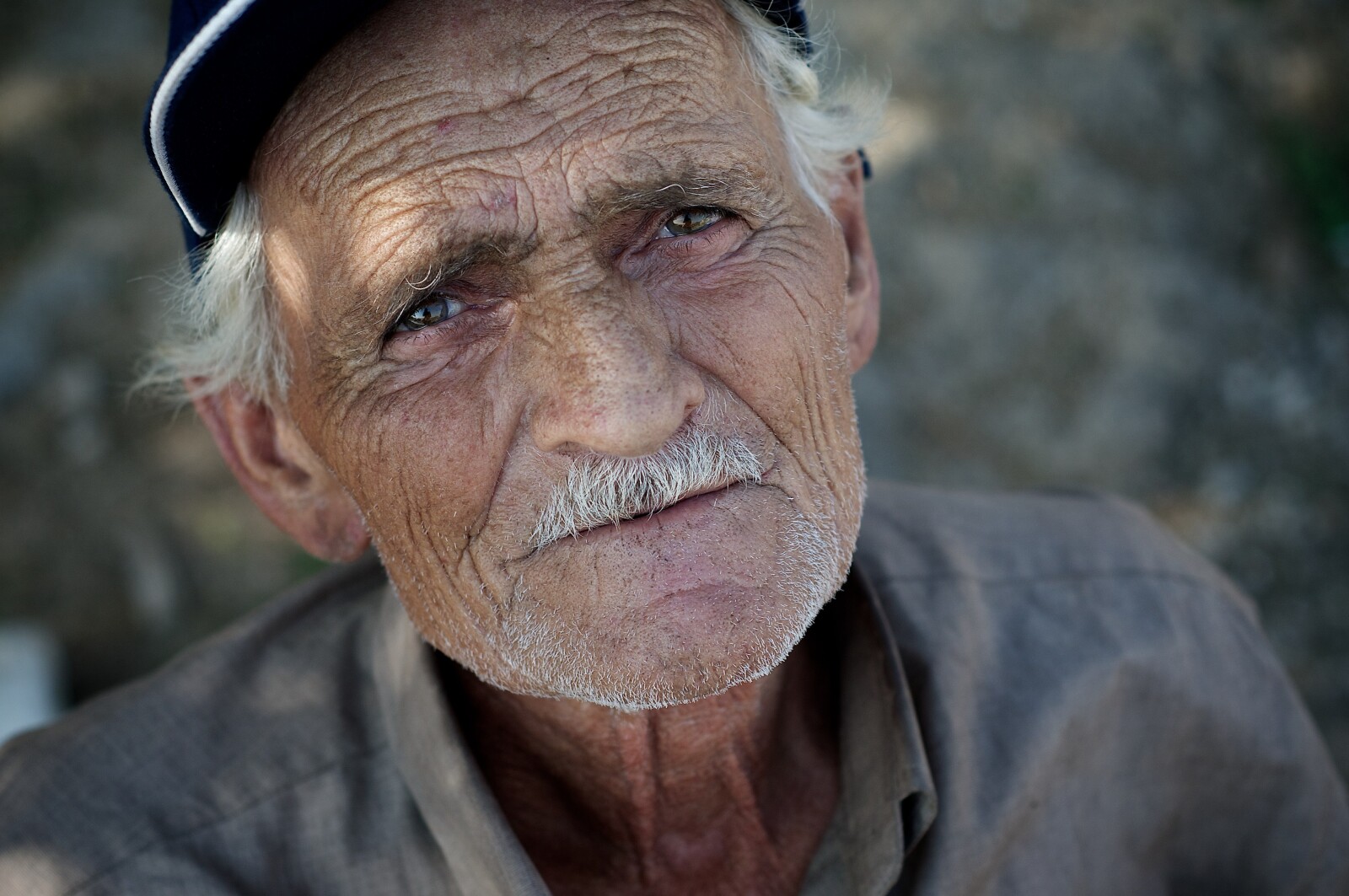Shocking Truths: Unveiling Nursing Home Abuse
In 'Shocking Truths: Unveiling Nursing Home Abuse', we delve into the often-ignored issue of elder abuse in care facilities. Identifying various forms of abuse, from physical to emotional, we explore their devastating impact on victims. This piece not only highlights warning signs but also addresses preventative measures and legal considerations, shedding light on this critical issue in an empathetic, investigative, and detail-oriented manner. Let's foster awareness and champion the rights of our vulnerable elders.

Key Takeaways
- Nursing home abuse can take various forms, including physical, emotional, sexual, financial exploitation, and neglect.
- The consequences of nursing home abuse can be severe, resulting in physical injuries, long-term psychological trauma, financial instability, and a decreased quality of life.
- It is important to recognize the signs of abuse, such as unexplained injuries, sudden changes in mood, and unsanitary living conditions, and to report any suspected abuse promptly.
- Prevention and advocacy against nursing home abuse involve thorough research on facilities, open communication with staff and residents, advocating for resident rights, involving the wider community in prevention efforts, and addressing the issue through policy-making.
Understanding Nursing Home Abuse
In the pursuit of understanding nursing home abuse, it is crucial to recognize the five primary types - physical, emotional, sexual, financial abuse, and neglect. Each type, characterized by its unique demeaning nature, contributes significantly to the prevalence rates of abuse in nursing homes. The consequences of abuse are dire; they extend beyond the immediate physical injuries to long-term psychological trauma and loss of trust. The financial exploitation leaves victims in precarious economic states, while neglect leads to a decreased quality of life. Understanding the various forms of abuse is the first step towards combating this pervasive issue. By acknowledging the prevalence rates and the severe consequences, we can collectively work towards creating safer environments for our most vulnerable citizens.
Types of Elderly Abuse in Care Facilities
Undeniably, the different types of elderly abuse in care facilities range from physical and emotional to financial exploitation and neglect, each posing a grave concern for the welfare of our aging population. To combat long term care abuse, it is essential to understand these various forms and develop effective elderly abuse prevention strategies. Physical abuse may involve infliction of pain or injury, while emotional abuse can manifest as humiliation, threats, or isolation. Financial exploitation, a less visible but equally damaging form, involves unauthorized use of the elder's resources. Lastly, neglect, characterized by lack of care or attention, is perhaps the most pervasive and underreported. This thorough understanding paves the way for empathetic, investigative approaches to stem this alarming issue.
The Dark Reality: Physical Abuse
Approximately one in ten elders reportedly experience some form of physical abuse, a somber reality that underscores the urgency of addressing this rampant problem in our society. Physical abuse in nursing homes manifests in various forms, such as slapping, pushing, or even improper use of restraints. The impact on the victims is both physically damaging and emotionally distressing, often leading to a deteriorated state of health and quality of life.
Prevention strategies are crucial and should encompass regular visits, open communication, and active vigilance for signs of abuse. Additionally, timely legal actions against perpetrators are key to deter others and safeguard our elders. As a society, we must foster a culture of respect for elders while decisively addressing any form of elder abuse.
Emotional Abuse: The Silent Trauma
Emotional abuse, often characterized by manipulation, belittlement, and isolation, produces a profound sense of fear, but because of its insidious nature, it frequently remains undetected in nursing home settings. This unseen trauma can have long term effects, significantly impacting the emotional well being of elderly residents. It can manifest as sudden changes in mood, unexplained withdrawal from social interactions, and a pervasive sense of fear or unease. Unveiling this silent trauma requires a sharp eye and empathetic understanding of these subtle signs. It is crucial to investigate and address this issue promptly, as the emotional scars can run deep and the healing process is often long. This underscores the importance of safeguarding the emotional well-being of our elderly population, who deserve to spend their twilight years in peace and dignity.
Sexual Abuse: A Hidden Scandal
While it is difficult to contemplate, especially in the context of caring for our most vulnerable citizens, sexual abuse in nursing homes has emerged as a hidden scandal that urgently needs public attention and decisive action. The insidious nature of this abuse often leaves victims silent, shrouded in shame and fear. Prevention strategies should focus on education, regular monitoring, and fostering an open atmosphere where residents feel safe to report any misconduct. Equally important are the legal implications. Strict laws need to be imposed and enforced to hold violators accountable. In addition, victims and their families should be supported in pursuing justice. The collective effort of society, lawmakers, and care providers is crucial in eradicating this atrocious violation of human rights.
Financial Exploitation in Nursing Homes
Given that financial exploitation in nursing homes is a growing concern, it is imperative to increase awareness and implement stricter regulations to protect the elderly from such unscrupulous practices. Preventing financial exploitation involves educating nurses, caregivers, and family members about the signs of financial abuse. These signs often include sudden changes in banking activities, unexplained withdrawals, or alterations to wills and deeds. Moreover, it requires relentless investigative practices to spot irregularities in the management of personal assets. A detail-oriented approach towards monitoring can help in early detection of exploitation. The role of authorities is crucial as they need to enforce rigorous audits and reporting systems. Empathetically understanding the vulnerability of the elderly and acting decisively can help safeguard their financial security.
Neglect: The Passive Aggression
In our ongoing examination of nursing home abuse, we now turn our focus to neglect, a form of passive aggression that can have severe consequences on the health and well-being of residents. Neglect often manifests as unmet essential needs, such as unsanitary living conditions, malnutrition, or lack of necessary medical care. The long-term effects can be severe, leading to physical decline, mental distress and, in extreme cases, mortality. Addressing neglect in nursing homes is paramount and requires diligence, from routine inspections to staff training. It is critical to foster a culture of care and respect, ensuring that each resident receives the attention they deserve. Ignoring the issue only perpetuates the cycle of harm. Neglect, though subtle, is insidious and can be as damaging as overt abuse.
Recognizing Signs of Nursing Home Abuse
The identification of nursing home abuse is a matter of paramount importance, where vigilance can lead to the revelation of subtle yet damaging signs that indicate a resident's suffering. Recognizing signs such as unexplained injuries, sudden changes in mood, or unsanitary living conditions is the first crucial step towards addressing this pervasive issue. Unveiling these truths can be distressing, yet it is necessary to ensure the safety and dignity of our elders. Taking action is not only a responsibility but a moral imperative. This involves alerting local authorities, documenting evidence, and notifying the nursing home administration. An empathetic, detailed-oriented approach can lead to a comprehensive investigation, potentially saving a resident from further harm.
Physical and Psychological Impact of Elderly Abuse
Elderly abuse, whether physical or emotional, not only leads to immediate health complications, but also inflicts long-term psychological trauma that can drastically reduce an individual's quality of life. The scars left by such abuse manifest not just physically, but mentally, leading to an enduring sense of fear, anxiety, and loss of trust. The psychological impact often lasts far longer than the physical injuries, exacerbating the victim's suffering. Preventing elder abuse is paramount, and it begins with recognizing the signs early and taking prompt action. This includes regular visits, open communication, and advocating for resident rights. The long-term effects of elder abuse are substantial, making prevention not just a responsibility, but a moral and societal imperative.
Trust Betrayed: The Emotional Impact of Elderly Mistreatment
Mistreatment of the elderly, particularly those in nursing homes, often leads to a profound betrayal of trust, which can bring about severe emotional trauma and deteriorating mental health. Prevalence statistics indicate this is a rampant issue, with one in six elderly individuals reportedly experiencing some form of abuse in community settings annually. This abuse, whether physical, psychological, or financial, can have long-term effects on the victims. They may become withdrawn, fearful, and even show signs of post-traumatic stress disorder. Cognitive decline, depression, and anxiety are also common repercussions. The betrayal of trust inflicted upon our elder population underscores the urgent need for comprehensive strategies to combat this pressing issue and prevent further emotional damage.
Reporting Elderly Abuse: Your Role
In the realm of combating elderly abuse, understanding and acknowledging your role in reporting any signs of mistreatment is critical to ensure the safety and well-being of our senior citizens. Scrutinizing elderly abuse statistics, one can't help but be appalled by the magnitude of the problem. Each statistic embodies a tragic tale of violation of trust, dignity, and human rights. Reporting abuse anonymously can serve as a powerful tool, offering protection to victims while ensuring the privacy of the reporter. It's vital that we adopt a detail-oriented approach, observing for subtle signs of abuse, and taking prompt action. Anonymity in reporting can encourage more people to come forward, thereby unveiling the hidden epidemic of elderly abuse. Remember, in this fight, your role is crucial.
Legal Considerations in Elderly Abuse Cases
Understanding the legal framework surrounding nursing home abuse is essential, and it can often be a complex process due to the nuances of elder law and the varying degrees of abuse. Legal considerations play a significant role in addressing these abhorrent acts. Liability concerns arise when the facility fails to provide adequate care, or when intentional harm is inflicted upon the elderly. The law provides recourse, but it requires thorough investigation, detailed documentation, and a deep understanding of legal parameters. One must navigate the legal maze with empathy for victims, while maintaining a steadfast focus on accountability. As we unveil the shocking truths of nursing home abuse, the importance of understanding legal considerations and liability concerns becomes even more apparent, shining a light on the path towards justice for our elders.
Importance of Documenting Evidence
Every piece of documented evidence, no matter how small or seemingly insignificant, plays a crucial role in building a strong case against nursing home abuse, and it provides an indisputable record of the incident. It's a vital tool in the fight for justice, underscoring the importance of legal action in these heart-wrenching scenarios. The value of thorough documentation cannot be overstated; it's a beacon of truth amidst conflicting narratives or denials. Conversely, the consequences of inaction or inadequate documentation can be detrimental, possibly resulting in the dismissal of the case, perpetuating abuse, and compromising the safety of vulnerable individuals. To protect our elders, we must remain vigilant, empathetic, and detail-oriented, ensuring every piece of evidence is meticulously preserved and utilized.
Prevention Strategies Against Nursing Home Abuse
Seven critical prevention strategies against nursing home abuse include conducting thorough research on the facility, maintaining regular visits, fostering open communication with staff and residents, staying vigilant for signs of abuse, advocating for resident rights, seeking legal counsel when necessary, and reporting any signs of abuse without delay. These strategies are pivotal in raising awareness and ensuring the safety of vulnerable adults under care. Vigilance is key; any sudden changes in behavior, unexplained injuries, or unsanitary conditions should prompt immediate investigation. Open communication with residents aids in building trust, making them feel safe enough to voice out any concerns. Advocacy for resident rights upholds their dignity and autonomy. Additionally, legal counsel can assist in navigating complex situations while reporting abuse aids in its prevention.
Advocating for Nursing Home Resident Rights
A significant proportion of nursing home residents have faced violations of their rights, making advocacy a critical component of ensuring their well-being and dignity. The need for resident empowerment is pressing, as it helps individuals to assert their rights, make informed decisions, and protect themselves against potential abuse. Family involvement can play a pivotal role in this context, serving as an external watchdog and providing emotional support to residents. The fight against nursing home abuse must be comprehensive, involving not just families but also the wider community, legal entities, and policy-makers. By fostering a culture of respect, transparency, and accountability, we can uphold the rights of nursing home residents and safeguard their dignity and well-being.
Frequently Asked Questions
What Are Some of the Legal Penalties a Nursing Home May Face if Found Guilty of Abuse?
If a nursing home is found guilty of abuse, various legal penalties may be imposed. These include fines, license revocation, or even criminal charges. The extent of these penalties depends on the severity of the abuse, evident through abuse indicators. Legal protections are in place to ensure justice is served, encompassing both criminal and civil law. It emphasizes the importance of vigilance in detecting and reporting any signs of maltreatment in these establishments.
How Can a Family Member or Friend Support a Victim of Nursing Home Abuse in Their Recovery?
Supporting a victim of nursing home abuse requires a multifaceted approach. Emotional healing is paramount, which may be facilitated through therapy options such as counseling or support groups. Encouraging open communication about their experiences can also aid in recovery. In addition, providing reassurance of their safety, affirming their feelings, and accompanying them to legal or medical appointments can offer invaluable assistance. Remember, each individual's healing process is unique, and patience is crucial.
In What Ways Can Nursing Homes Improve Their Staff Training to Prevent Instances of Abuse?
Nursing homes can enhance staff training by emphasizing on abuse detection techniques, ensuring staff can identify subtle signs of physical or emotional abuse. Regular workshops can be held to reinforce these skills. Additionally, implementing surveillance systems can deter potential abuse and provide crucial evidence if abuse occurs. Regular audits of these systems can ensure their effectiveness. This holistic approach can significantly minimize instances of abuse, ensuring resident safety.
What Resources Are Available for Victims of Nursing Home Abuse and Their Families?
Victims of nursing home abuse and their families have access to various resources. Legal and financial assistance options include attorneys specializing in elder law, Medicare, Medicaid, and various non-profit organizations. Emotional healing strategies include therapy, support groups, and counseling services. Additionally, Adult Protective Services and Ombudsman programs provide guidance and support. It's crucial to thoroughly investigate these resources to find the most suitable assistance for unique circumstances.
How Does the Process of Reporting Nursing Home Abuse Usually Unfold After the Initial Report Is Made?
Upon receiving an initial report of nursing home abuse, authorities typically launch an investigation to ascertain the validity of the claims. This involves examining abuse indicators like unexplained injuries or behavioral changes. Whistleblower protections are in place to protect those reporting the abuse from retaliation. If substantiated, the facility may face penalties, corrective action, or legal proceedings. It's crucial to support the victim and their family throughout this process, ensuring their safety and wellbeing.
Conclusion
In conclusion, nursing home abuse remains a grave issue requiring urgent attention. Understanding its various forms, recognizing warning signs, and being aware of the devastating impact on victims is essential. Equally important is the knowledge of how to effectively report abuse and implement preventive measures. This underscores the need for thorough research, consistent visitation, and strong advocacy for resident rights, all vital steps towards ensuring the safety and wellbeing of elders in care facilities.

This post has been generated by AI and was not reviewed by editors. This is Not legal advice. Please consult with an attorney.




